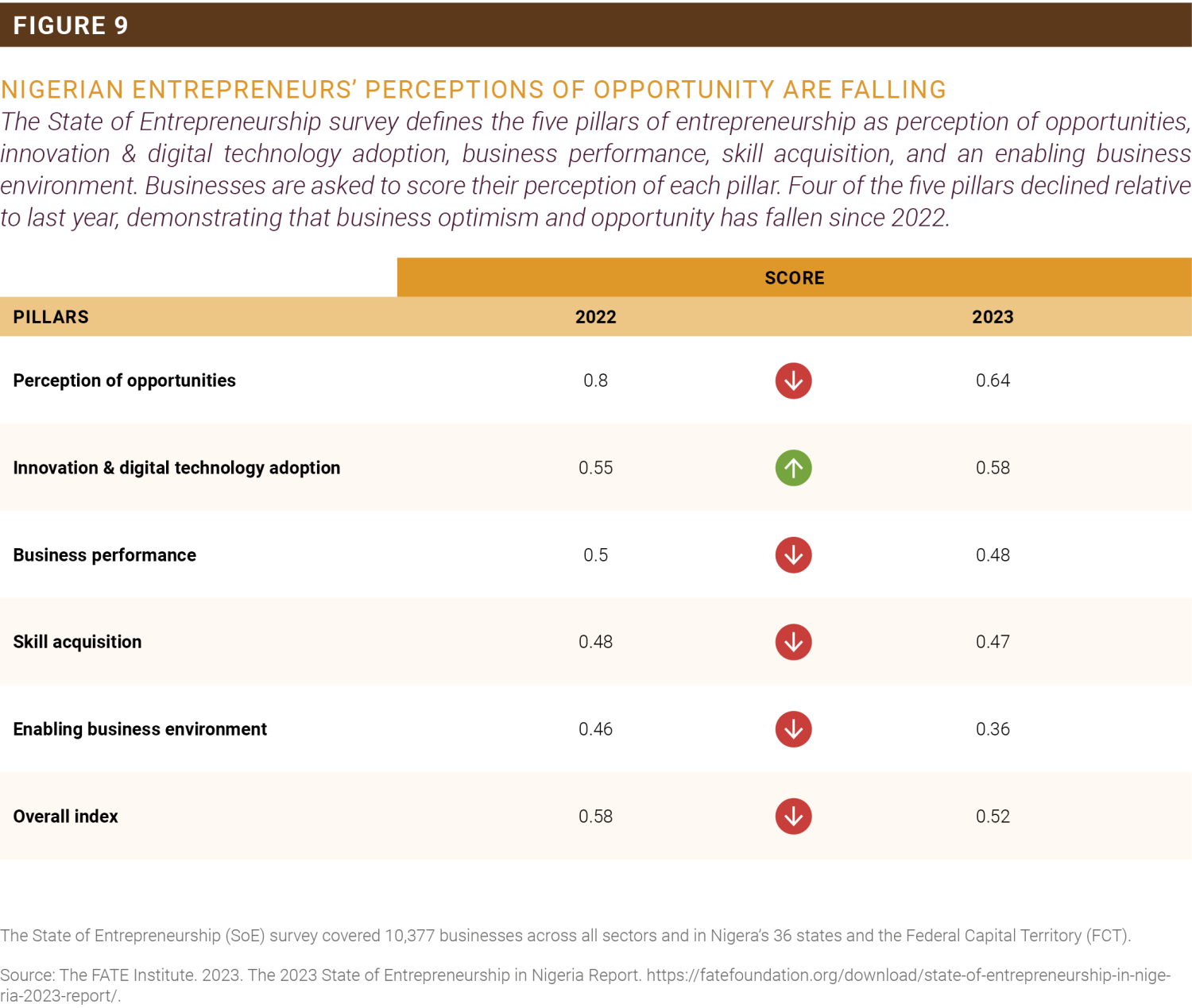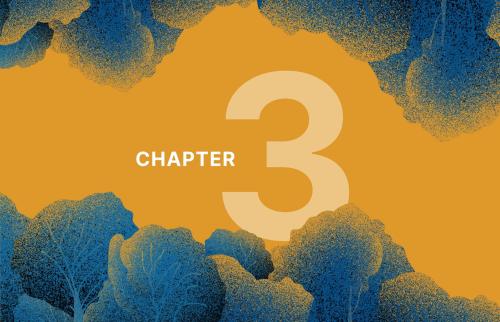This viewpoint is part of Foresight Africa 2024.
Support for MSMEs is critical for Nigeria to return to a path toward a prosperous, sustainable, and equitable economy.
Nigeria’s recent national growth plan and the new government’s New Hope Agenda highlight the opportunities that Micro, Small, and Medium Enterprises (MSMEs) create for the achievement of development objectives. As we look towards 2024, our belief at FATE Foundation is that Nigeria’s MSMEs can become the main drivers of economic recovery and inclusive growth only if there is a strong emphasis on enabling productive enterprises.
2023 was a challenging year for Nigeria’s MSMEs. Despite the “green shoots” Nigeria experienced following the re-opening of the economy in 2021-22 after the pandemic, economic development in late 2022 and 2023 was negatively impacted by the flawed implementation of the Naira Redesign Policy, the impact of fuel subsidy removal which increased operational costs, and the slowdown of economic activity due to the national and state-level elections.
In our 2023 State of Entrepreneurship Report which provides a reference point for policymakers to make data-driven decisions to promote entrepreneurship in Nigeria, we noted a deterioration in entrepreneurial performance1 with over 90% of entrepreneurs surveyed indicating that the fuel subsidy removal had and continues to have a negative impact on their businesses.
While they contribute over 90% to entrepreneurial activity in Nigeria and make up 87.9% of the country’s labor force, over 90% of MSMEs are micro-enterprises with suboptimal productivity and low growth. When we apply a youth and gender lens, however, we do see some very bright spots.
Young people are the fastest growing age segment and those between the ages of 15 to 29 account for 42% of MSME entrepreneurs. With high unemployment and underemployment rates being a challenge in Nigeria for that age category,2 it is encouraging to see more young people take on the opportunity of building their own economic pathways and creating a job for themselves through entrepreneurship. With business growth being one of our strong indicators of entrepreneurial performance, Women entrepreneurs—who make up 43% of MSME employees— showed better productivity output as they outperformed their male counterparts within that indicator level.3
In charting the pathway for a better Nigeria in 2024, the following are key policy priorities to stimulate the entrepreneurial ecosystem and enable inclusive and broadbased growth for MSMEs.
- Changing measurement indicators for MSME investments to be age and gender disaggregated and reflect socio-economic impact e.g., decent jobs created, revenue growth, and ability to transition across segments (from micro to small or medium levels).
- Removing regulatory bottlenecks and harmonizing multiple taxation to galvanize business startup, growth and sustainability. Digitizing required regulatory processes and procedures and creating virtual and physical one-stop shops at Local Government levels (Nigeria has 774 LGAs) can enable this at scale.
- Accelerating the dual transition of youth and women led MSMEs (digital and green) to enhance their pathways to growth and improve their ability to attain entrepreneurial success.
- Domesticating the African Continental Free Trade Area agreement to improve Nigeria’s MSME competitiveness (currently at 47%)4 and fast track their participation in regional and global trade.
Nigeria’s small and growing businesses need to be more productive in order to contribute effectively to the growth and development of the country. Support for MSMEs is critical for Nigeria to return to a path toward a prosperous, sustainable, and equitable economy.
-
Footnotes
- The FATE Institute. 2023. State of Entrepreneurship in Nigeria. The FATE Institute, FATE Foundation.
- The Nigerian Bureau of Statistics 2022. Nigerian Labor Force Survey Q2 2023. The Nigerian Bureau of Statistics.
- The FATE Institute. 2023. State of Entrepreneurship in Nigeria. The FATE Institute, FATE Foundation.
- SMEDAN. 2023. MSME Competitiveness in Nigeria Report 2022. The Small and Medium Enterprise Development Agency of Nigeria.
The Brookings Institution is committed to quality, independence, and impact.
We are supported by a diverse array of funders. In line with our values and policies, each Brookings publication represents the sole views of its author(s).









Commentary
Accelerating productive MSMEs: The much-needed catalyst for Nigeria’s socio-economic recovery
June 13, 2024